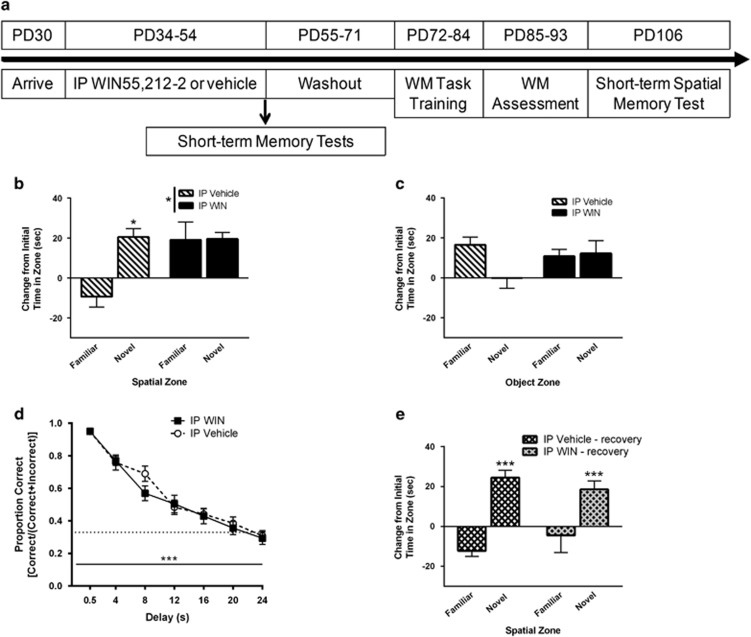Figure 5.
Experimenter-administered cannabinoids during adolescence acutely impair short-term memory, but have no effect on working memory performance in adulthood. (a) Experimental timeline. Rats received daily intraperitoneal (IP) injections of WIN (1.2 mg/kg; n=16) or vehicle (n=17) during adolescence. (b) Twenty-four hours after the last IP injection, short-term spatial (b) and object (c) memory was assessed in one cohort of IP WIN (n=8) and IP vehicle (n=9) rats. Rats with a history of IP vehicle exhibited intact short-term spatial memory, whereas rats with a history of IP WIN during adolescence did not discriminate between the two locations, indicating a short-term spatial memory deficit. Rats with a history of IP vehicle during adolescence tended to discriminate familiar from novel objects, and thus exhibited intact short-term memory for objects. Rats with a history of IP WIN during adolescence did not discriminate between the two objects, indicating a deficit in short-term recognition memory. (d) Adult working memory was not different in rats that received IP WIN or IP vehicle during adolescence. (e) After extended abstinence from IP WIN (n=8) or IP vehicle (n=8), both groups exhibited intact short-term memory, indicating recovery from the acute deficits induced by WIN. Values show group means±SEM; ***p<0.001, *p<0.05.

